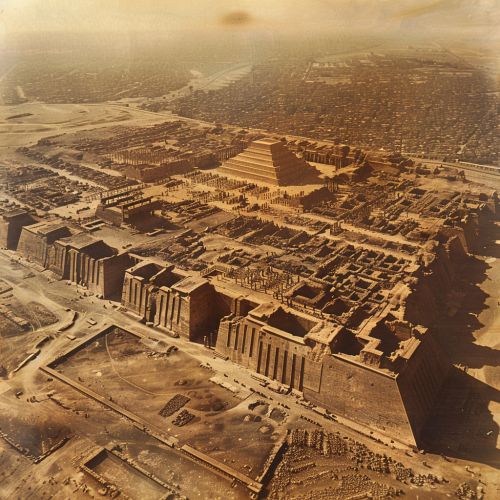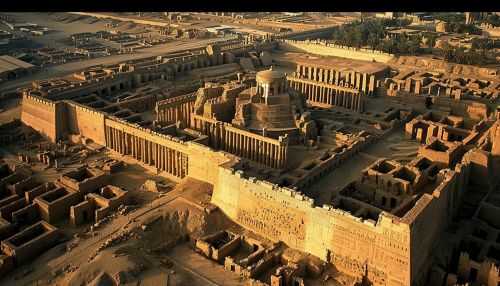Babylonian civilization
Introduction
The Babylonian civilization was a significant ancient civilization that emerged in the region of Mesopotamia, specifically in the area known as Babylonia. This civilization, which thrived from the 18th to the 6th century BCE, is renowned for its advancements in law, architecture, and astronomy, among other fields.


Geography
The geographical area of Babylonia was located in the eastern part of the Fertile Crescent, situated between the Tigris and Euphrates rivers. This region, now part of modern-day Iraq, was characterized by its fertile lands, which were conducive to agriculture and the development of early civilizations.
History
The history of the Babylonian civilization can be divided into three main periods: the Old Babylonian Period (2000-1595 BCE), the Middle Babylonian Period (1595-1000 BCE), and the Neo-Babylonian Period (626-539 BCE).
Old Babylonian Period
The Old Babylonian Period was marked by the rise of the city of Babylon under the rule of the Amorite king, Hammurabi. Hammurabi is best known for the development of the Code of Hammurabi, one of the earliest and most comprehensive legal codes in human history.
Middle Babylonian Period
The Middle Babylonian Period was characterized by foreign invasions and the decline of Babylon's political power. However, this period also witnessed significant developments in literature and science.
Neo-Babylonian Period
The Neo-Babylonian Period, also known as the Chaldean Dynasty, was the last phase of the Babylonian civilization. This period saw the resurgence of Babylon as a major political and cultural center, with notable achievements in architecture, such as the construction of the Hanging Gardens of Babylon, one of the Seven Wonders of the Ancient World.
Culture
The Babylonian civilization was marked by its rich and vibrant culture, which was reflected in its literature, art, and religion. The Epic of Gilgamesh, one of the earliest known works of literature, originated from this civilization.
Science and Technology
The Babylonians made significant advancements in various fields of science and technology, including astronomy, mathematics, and engineering. They developed a sexagesimal (base-60) number system, which is still used today in measuring time and angles.
Legacy
The legacy of the Babylonian civilization is profound and far-reaching. Their contributions to law, literature, science, and architecture have had a lasting impact on subsequent civilizations and continue to be studied and admired to this day.
